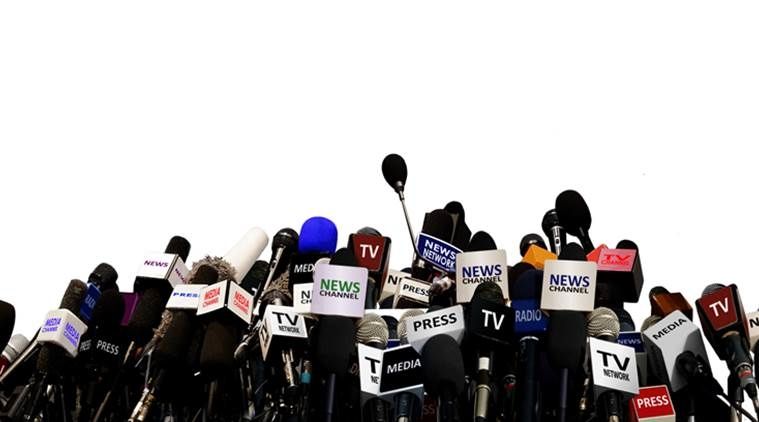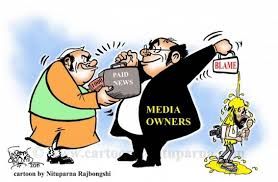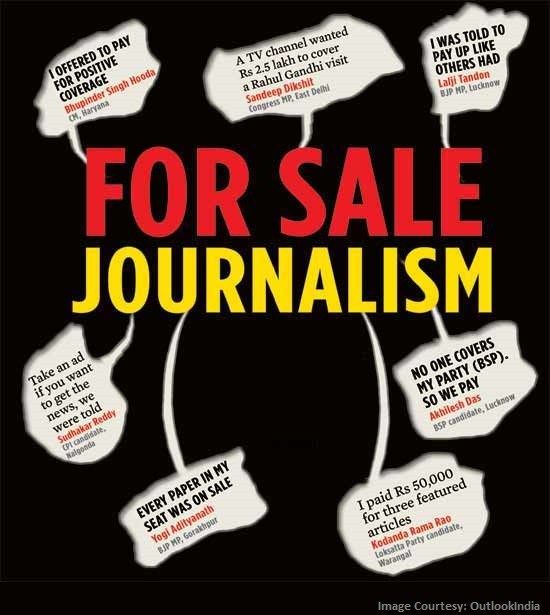Pay For View
May 22, 2019 • 19 views
What is news?
It’s a way to serve the happening around in purely unbiased manner without framing any opinion in the minds of the viewers.
Is it what we are served?
Is what we are served with really a “news” or an “opinion”?

In social structure, media has distinct place to form image about significant political and social issues. Media coverage has major impact on public when it characterises the whole event and provide reliable information about numerous issues. Around the world, mass media has an influence on civilisation and an in depth look at its most popular forms today would most certainly reveal numerous blatant injustices in the way TV networks, print media, and internet websites spread information. It has been seen that millions of citizens watch their television to know what is happening in their surroundings. They form opinions on certain issues based on news broadcast in TV or other news media. The media's role in political matters is especially significant when they have the power to make or break a candidate. They can criticise a candidate or make him/her likeable.
With more than 70,000 newspapers and over 500 satellite channels in several languages, Indians are getting news rammed through their throats with a diversity of biases.
Who owns who?
1.The Times Group with its flagship company Bennett, Coleman and Company Limited (BCCL) is India’s largest media conglomerate in India.
Political affiliation: BJP (Previously aligned with Indira Gandhi Govt. in 1980-90s)
2.The Hindustan Times is a daily newspaper founded in 1924 with roots in the Indian independence movement.
Political affiliation: Congress
3.The Indian Express is an English-language Indian daily newspaper. In 1931, the Indian Express was started by an Ayurvedic doctor, P. Varadarajulu Naidu.
Political Affiliation: Independent (Leaning towards Communist Party of India)
4.New Delhi Television Limited (NDTV) is an Indian commercial broadcasting television network founded in 1988 by husband and wife Prannoy Roy and Radhika Roy.
Political Affiliation: Congress andTrimanul Congress
5.Tribune India is an Indian English and Punjabi language daily newspaper published from Chandigarh. It was founded in 1881, in Lahore.
Political affiliation: BJP and Shiromani Akali Dal
There are claims of media bias from all opposing camps regarding several issues. The BJP supporters accuse some newspapers of anti-Narendra Modi bias while the Congress supporters accuse the others of being the mouthpieces of BJP and RSS. Often the news articles are paid advertisements by the political parties.
The role of the media is supposed to facilitate greater accountability of public personalities and bring the corruption into light. But in recent times the rise of paid and biased news is on extreme rise. Paid news is mostly in trend during the time of elections. Political parties pay a lump sum of money to media organisations in order to portray them in good light. In 2009 during Maharashtra assembly elections a complaint was filed against outgoing Congress Chief Minister Ashok Chavan alleging that he had paid money to some Marathi and Hindi newspapers during the 2009 elections to write in his favour. Several other political parties/entities have been accused of the same.

The role of the media is supposed to facilitate greater accountability of public personalities and bring the corruption into light. It is only when the media itself indulges in corrupt practices, it undermines the structure that is meant to uphold and strengthen democracy in the country. A country that enjoys all its rights, country that is ‘democratic’ needs to know the importance of unbiased true news. Event of fake and paid news maligns the sanity of the pious nation. We as a viewer, as a rightful citizen should be served with news that presents events as it is. Government and the public needs to be strict and aware for the same.

